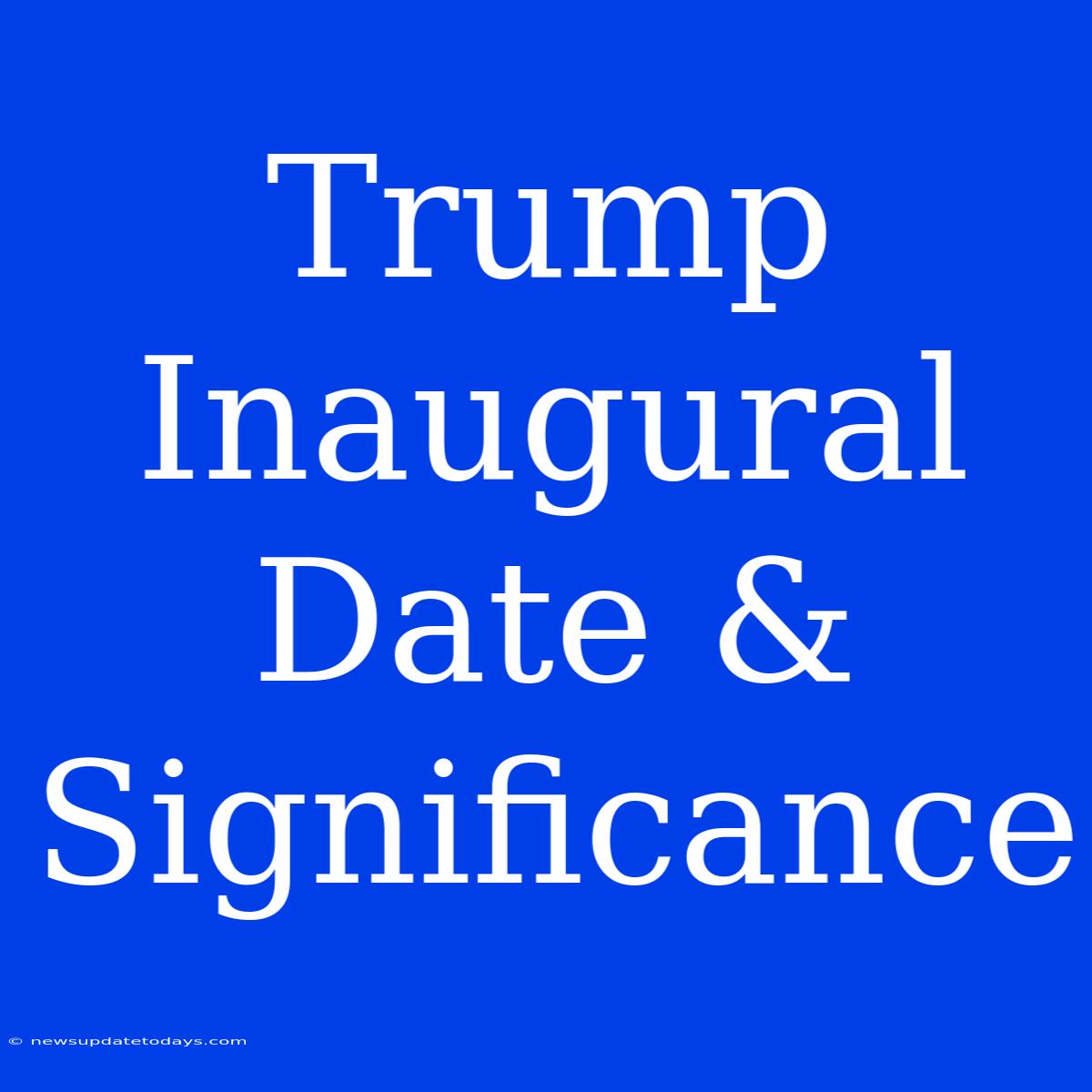Trump's Inauguration: Date, Significance, and Lasting Impact
Donald Trump's inauguration as the 45th President of the United States occurred on January 20, 2017. This date, while seemingly ordinary, marked a significant turning point in American history, sparking considerable debate and analysis even years later. Understanding the date's context and the inauguration's significance requires examining both the event itself and its lasting consequences.
The Date: A Constitutional Mandate
The date, January 20th, is enshrined in the 20th Amendment to the U.S. Constitution. This amendment, ratified in 1933, shifted the inauguration date from March 4th to January 20th, aiming to shorten the lame-duck period between elections and the commencement of a new presidential term. For Trump's inauguration, this meant a swift transition of power following the November 2016 election.
The Significance: A Divisive Inauguration
Trump's inauguration was unlike any other in recent memory. The event was marked by:
- High levels of political polarization: The election itself had been incredibly divisive, with record-low approval ratings for both candidates. This division carried over into the inauguration, with massive protests occurring both for and against the new president.
- Controversial statements and policies: Trump's campaign rhetoric, focused on themes of nationalism, protectionism, and immigration restriction, set the tone for his presidency and immediately ignited fierce debate. His inaugural address, emphasizing "America First," solidified these priorities.
- Unprecedented security measures: The sheer scale of the protests and concerns about potential unrest led to unprecedented security measures in Washington D.C., impacting access for attendees and observers.
- Low attendance figures: Compared to previous inaugurations, the crowd size at Trump's swearing-in ceremony was notably smaller, fueling further debate and contributing to the overall sense of division.
Lasting Impact: A Legacy Under Scrutiny
The Trump presidency, inaugurated on that January 20th, left a profound and lasting mark on American society and politics:
- Shift in political discourse: Trump's populist rhetoric and unconventional communication style significantly altered the political landscape, impacting how politicians communicate with the public and the nature of political debate.
- Judicial appointments: Trump's appointments to the Supreme Court and other federal courts fundamentally reshaped the judiciary, leaving a conservative imprint likely to impact legal decisions for decades to come.
- Economic policies: His administration's economic policies, including tax cuts and deregulation, sparked considerable debate regarding their long-term effects on income inequality and the national debt.
- Foreign policy changes: Trump's foreign policy initiatives, including his approach to international agreements and alliances, redefined the United States' role in global affairs.
Conclusion: A Day of Consequence
January 20, 2017, wasn't just a date on the calendar; it was the beginning of a presidency that continues to be intensely analyzed and debated. The inauguration itself, marked by unprecedented polarization and controversial policies, set the stage for four years of transformative – and often turbulent – events, leaving a lasting legacy on American politics and society. The significance of that date extends far beyond the ceremony itself, encompassing the far-reaching consequences of Trump's time in office.

